New for academic year 2024-2025
Students entering Mason in Fall 2024 or later will be required to take two Mason Core courses that have the Just Societies flag. Just Societies flags are added on to existing Mason Core Exploration courses in Arts, Global Contexts (coming in 2024-2025), Literature, Natural Science, and Social and Behavioral Sciences.
Students admitted prior to the Fall of 2024 are not required to take courses with a Just Societies flag but may wish to do so to further round out their general education program.
For more information on the history of this upcoming flag and the Mason Core enhancements, please refer to our Enhancements Archive page or the Enhancements FAQ page.
Just Societies
The Just Societies requirement is aligned with Mason’s commitment to preparing students to act in a diverse, global world. In the context of globalization and the diversification of our own nation, it has become essential for employees and citizens to be able to interact effectively with others from all walks of life. In 2022, all 100 of the Fortune 100 companies reported active commitments to diversity and inclusivity, and multiple leading outlets, such as Forbes and McKinsey & Company have made a “business case” for actively promoting inclusivity within the workplace. Accordingly, employers have increasingly rated the ability to work effectively in diverse teams and to understand different cultures as key characteristics needed in college graduates (AAC&U 2023 Employer Report; NACE Job Outlook 2024 Report). Moreover, as society has become more polarized, the ability to effectively engage with others who have differing beliefs has become a critical need.
The goal of Exploration courses with a Just Societies flag is to enable our students to meet these needs. The specific learning outcomes were designed in the context of Mason’s understanding of diversity – diversity of origin, identity, circumstance, and thought. This includes ability, age, family status, geographic region of origin, military/veteran status, nationality, neurodiversity, political beliefs, race/ethnicity, religious beliefs, sexual and gender identity, socioeconomic status, and more. Grounded in this definition, Just Societies courses focus on having students understand key terms commonly used in society and the workplace today, engage with one another effectively while using these terms, and collaboratively identify processes for change when warranted. These goals serve to further develop our students’ critical thinking skills, as well.
Mason’s notion of inclusivity is rooted in the idea of removing barriers and creating space to allow all individuals to fully engage in the life of the university. In line with this value, Just Societies courses are intentionally focused on the understanding of terms and the promotion of meaningful, respectful engagement with others around these constructs. Such engagement may well include discussions of areas of disagreement. The courses are not focused on the promotion of a prescribed set of beliefs; nor are students expected to espouse a particular set of values as a result of a Just Societies course. Rather, students are expected to be able to discuss their values using a common language.
Required: Two courses with a Just Societies flag
Learning Outcomes:
Courses with a Just Societies flag must meet both of these outcomes, in addition to other required course outcomes related to the primary Mason Core Exploration category. Upon completing a Just Societies course, students will be able to demonstrate the following competencies:
- a) Define key terms related to justice, equity, diversity, and inclusion as related to this course’s field/discipline and
b) Use those terms to engage meaningfully with peers about course issues
This competency focuses on ensuring students (a) have an accurate understanding of terms that have become commonly used in today’s workplaces and society and (b) are able to use these terms accurately and meaningfully, while respectfully engaging with other students around course content.
- Articulate obstacles to justice and equity, and strategies for addressing them, in response to local, national, and/or global issues in the field/discipline
This competency focuses on the capacity to evaluate and work toward solving such complex problems as obstacles to justice (fair and impartial treatment for individuals) and equity (freedom from bias or favoritism, such that all individuals can achieve their full potential and contribute to society).
Course Approval Process
The Just Societies designation may be obtained in two ways:
- Existing Arts, Global Contexts (coming in 2024-2025), Literature, Natural Science, and/or Social and Behavioral Sciences Mason Core courses can be revised to include the Just Societies learning outcomes.
- A new course can be developed that meets the appropriate Arts, Global Contexts (coming in 2024-2025), Literature, Natural Science, or Social and Behavioral Sciences Mason Core learning outcomes as well as the learning outcomes for Just Societies. The review process is conducted simultaneously for both sets of outcomes.
Faculty are encouraged to think broadly in their approach to course proposals for this category – proposals will be evaluated based solely on their conceptual fit and the fit of learning outcomes. In line with Mason’s celebration of all forms of diversity, including diversity of thought, there is no predetermined ideological focus that is or is not appropriate for this category of courses.
To submit a course for the Just Societies category, please complete the proposal worksheet provided below. Two versions of the document are provided for your convenience. Submit one complete form, the course syllabus, and any applicable assignments to CIM when complete.
We strongly recommend faculty participate in a course development and proposal workshop, available in collaboration with the Stearns Center, prior to completing the proposal.
Review the course submissions guide for a more detailed overview. To see examples of the courses that have already been approved for Just Societies, check out our Newly Approved Courses list.
